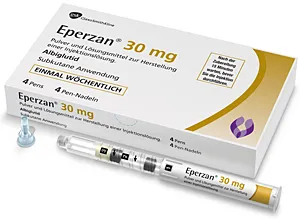The Ministry of Health has authorized the use in Spain of the Albiglutida, marketed by Glaxo Smith Kline (GSK) with the name of 'Eperzan', to control blood glucose in those adult patients with type 2 diabetes who need additional control.In addition to its effectiveness and tolerability, one of its advantages is that it can be administered once a week.
In principle it is indicated both in monotherapy, in those patients in which diet and exercise do not allow adequate glycemic control and the use of metformin is not recommended;As in combination with other antihyperglycemic drugs, including basal insulin.
The drug is administered subcutaneously and is part of the family of agonists of the receptor receptors of type 1 glucagon (LPG-1), which helps normalize blood glucose levels whose production is reduced in thesepatients.The human hormone occurs in the gastrointestinal tract and is released in response to food ingestion, enhancing insulin secretion to lower blood glucose after eating.
Among the advantages of this treatment is that it helps reduce blood glucose levels only when the levels are high so, unlike other diabetes treatments such as sulfonylureas or insulins, it has a lower risk of developing hypoglycemia, as explained by Didac Mauricio, of the Endocrinology and Nutrition Service of the Germans Trías I Pujol de Badalona (Barcelona) hospital.
approved in Europe in March 2014
Authorized by the European Medicines Agency (EMA) since March 2014, its approval has been based on the results of an extensive clinical development program that has included eight clinical trials in phase III with about 5,000 patientsand follow -ups of up to three years in some cases.
They evaluated the effectiveness and safety of 'Eperzan' alone or in combination against placebo or active comparators commonly used in different stages of the disease, as well as those with renal failure.
The average reduction of glycosylated hemoglobin (HBA1C), glycemic determination used for the control of diabetes patients, was between -0.6 and -0.9 percent with respect to before using the drug, and associatedto an average change of body weight between 0.3 and -1.2 kilos.
In principle it does not require a dose adjustment depending on age or in those patients who suffer mild or moderate renal failure, and the patient himself can administer it at any time of the day, regardless of meals.
good tolerability
In addition, it presents a good tolerability profile compared to other drugs of its same family, according to Francisco Javier Ampudia, of the Endocrinology Service of the University Clinical Hospital of Valencia, which the agonist considers it "with the friendliest face."
The most frequent adverse reactions, in addition to hypoglycemia if combined with insulin or sulfonylurea, were diarrhea and nausea (in greater frequency in patients with renal insufficiency), as well as reactions in the place of injection.
Experts believe that the possibility of administering once a week makes it possible to improve adherence to the treatment of patients, as well as that it can be prescribed by primary care doctors.


